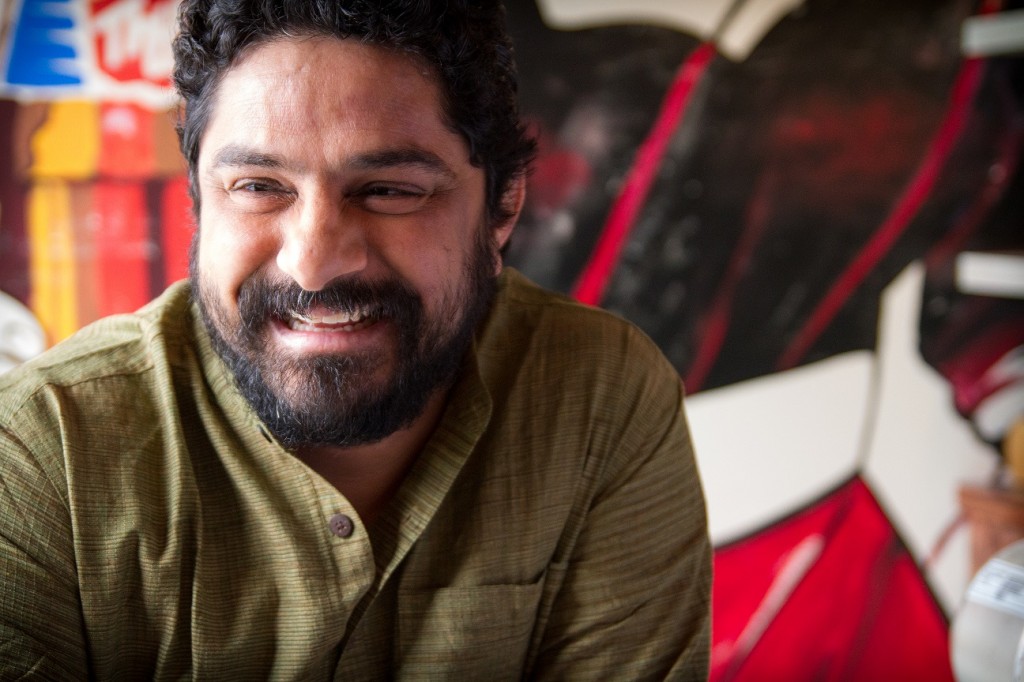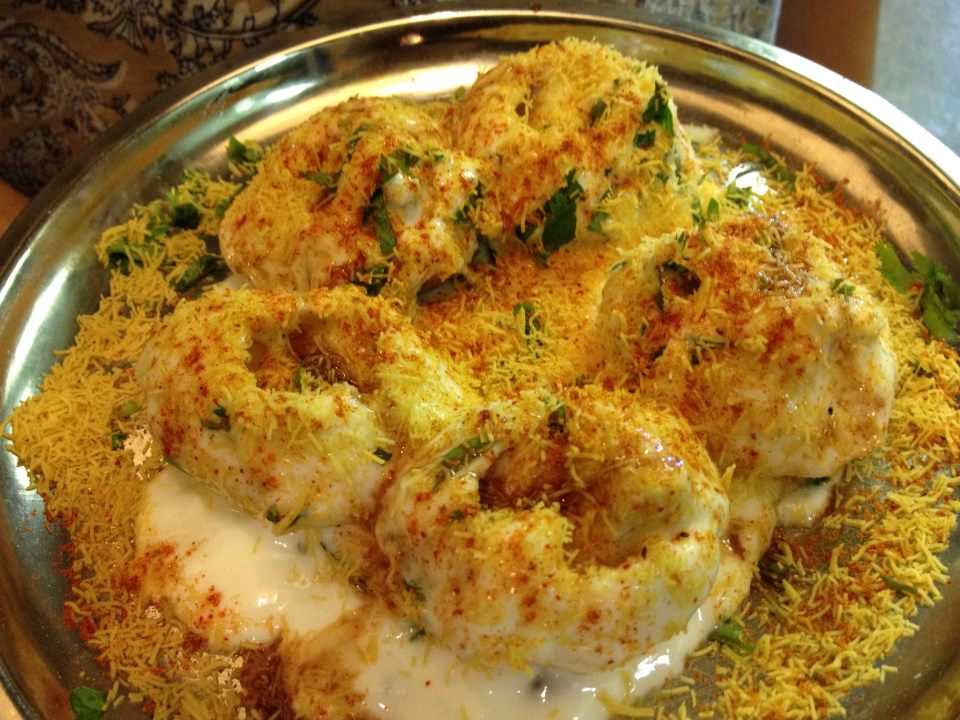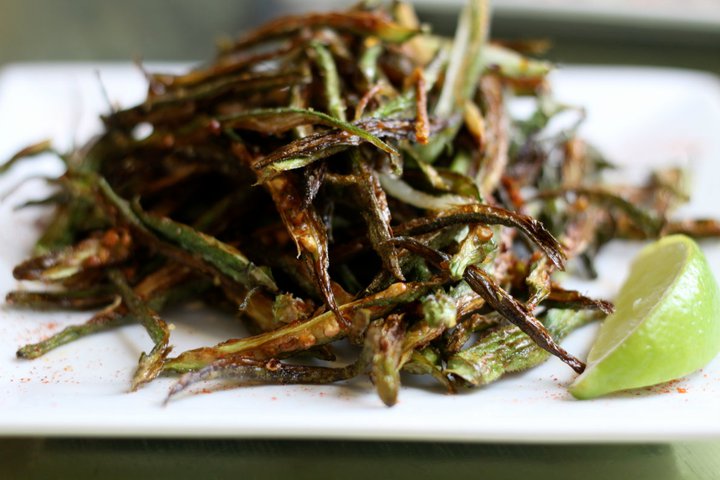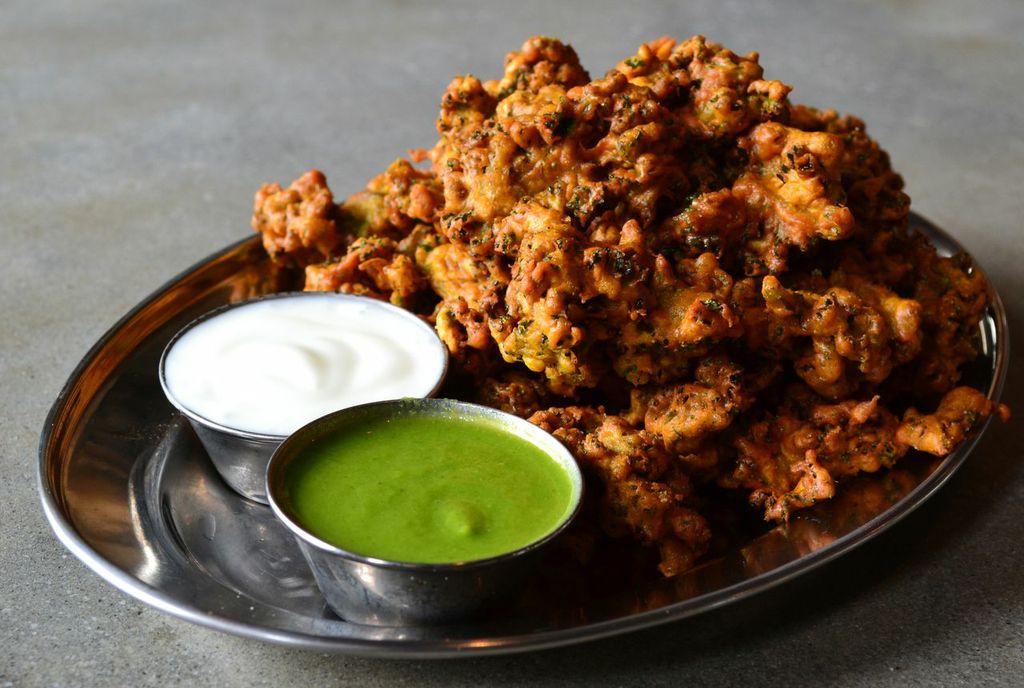This article is the second in a series on South Asian chefs and restaurateurs in America.

Meherwan Irani’s first job was busing tables at a family friend’s restaurant. But it wasn’t until 20-plus years later that he realized he wanted to turn his love of food into a career.
“We feel like missionaries.”
Now, he’s just opened the second location of his restaurant, Chai Pani, right outside of Atlanta in Decatur, Georgia. The thriving business offers traditional street food dishes like dahi puri and vada pav in a table-service environment. It already has ardent fans — Irani had to close early on the Sunday of Chai Pani’s first weekend after an overrun of eager customers. “We feel like missionaries. I feel like I’ve come across a concept and a kind of food, and I just want to spread the word.”
The Path to Chai Pani
The first Chai Pani in Asheville, North Carolina, opened in September 2009. How Irani got there from Pune, India is a long story. “Oh, I was a good Indian,” he laughs. “I came to America, I got a scholarship, I went to grad school, I did everything you were supposed to do. I worked in sales and marketing for 15 years before I had to call my mom and say, ‘I’m quitting this all to be a chaat wallah.’”
“I’m quitting this all to be a chaat wallah.”
Luckily, his mom got it. She knew Irani had been interested in food his whole life. “She knew that I’d be happy,” he says, and it’s obvious from his smile that he is.
Irani’s job busing tables was not optional. After coming to the United States for business school, he began work at the restaurant of family friends in Myrtle Beach, South Carolina. It was just a job to him — until the owners’ daughter, Molly, came home from college.
“She showed up and started working tables, and it took about three days for me to fall head over heels with her.” When he graduated, he moved to the Bay Area with Molly. They got married and had a baby girl, and life was good. But Irani’s hours on the job were long. “To get through it, two friends from work and I formed an eating club. We made it a mission every year to go through the top 50 restaurants in San Francisco, and that’s when I got really interested in food and cooking.”

Eventually, the Iranis moved to Asheville to raise a family. Things were fine until the market crashed. After that, the couple had a serious talk about what to do next. “A week later,” Irani remembers, “I sat up in bed one night and said, ‘I know exactly what I can do,’ and Chai Pani was born. I wrote the menu that night.”
His wife tried to talk him out of it. Her parents had been in the business, and she warned him about what a hard life it was. “She was a restaurant kid,” he says. “But I promised things would be different with us.”
So he used what he learned in his MBA and wrote a 100-page business plan, not only to convince her but also to make sure that his idea was sound. “You hear all these statistics — failed marriages, failed restaurants — and I wanted to make sure we didn’t end up that way. If you have a successful business, it should work, right?”
Going Beyond Chicken Tikka Masala to Perfecting Home-style Street Eats
It’s worked at both locations. “You know how most Indian food is in America — for the most part, all restaurants serve the same thing,” says Irani. “Seeing it represented so narrowly was really frustrating to me.”
His American friends thought Indian food was all chicken tikka masala, saag paneer, and garlic naan. So with Chai Pani, Irani created the concept of accessible Indian street food. “I wanted any little old lady passing by on the street to walk in and feel comfortable here,” he says.

Irani emphasizes the importance of making sure his staff is at ease with both Indian culture and food. He brought his mom over to train the crew before they opened. “As soon as I got the idea,” he says, “I called up my mother and said, ‘Mom, I’m going to need some help.’ She’s the best cook I know.”
Most of Chai Pani’s management staff has been to India. “I’ll take a home-cooked meal over a restaurant one any day,“ Irani says, and it’s clear in the way that he’s trained his team. Chef de cuisine Daniel Peach, who now speaks, writes, and reads Hindi fluently, spent more of his six months in India in home kitchens learning to cook from mothers and grandmothers than he did in restaurants, a fact that’s reflected in the menu.
To create the menu, Irani focused on Indian street food that he craved — dishes like bhel puri and papri chaat. “That was the Indian part of me,” says Irani. But he had also been exposed to American and classic French techniques and wanted to incorporate them. “Indian food is very rustic, there’s not a lot of refinement in it — it’s got very bold, bright, forward flavors.” He decided to take modern American ingredients and techniques and combine them with traditional Indian recipes. “Using that culinary mindset, I’ve tried to elevate every dish to another level.” With his attention to detail, it took Irani almost a year to perfect his popular tamarind chutney.
On the Menu: Pakoras for Locavores

The idea of foraging is well known in the American South, where many greens — kale, dandelion, collards — were once cooked out of necessity, in hard times when people harvested anything edible they could find. But it’s not an exclusively Southern initiative. “My mom brought a love of foraging with her to the restaurant,” recalls Irani. “She grew up on a farm in north India and often repurposed things that were growing nearby.” Irani tries to do the same. “I like to ask, ‘What would that taste like if we did this to it?”
That’s how the popular kale pakoras on his menu came to be. “There are so many farmers around Asheville, and they’ll just show up to the restaurant with fresh, seasonal local produce. Sometimes we buy things and figure out what we’re going to cook with it later,” says Irani. “With the kale, a farmer brought us a box of it, and we had to decide what to do. When in doubt, deep fry, right?” The restaurant has also served fried green tomato and sweet potato pakoras.
It’s important to Irani that Chai Pani is accessible to everybody, Indians and Americans alike. One of the proudest moments in his life was when a young Indian couple came up to him after eating dinner in the restaurant and told him, “When we come here, it makes us proud to be Indian.”
Irani smiles and says, “They felt like they were being represented at a level that they wanted. They’re coming from a young India, a modern India, that’s trying to step forward into a new century without letting go of the traditions. They wrapped up everything I was trying to do: pay homage to the authenticity and the tradition of the food but present it in a way that we want the rest of the world to see.”
Chai Pani has locations in Asheville, North Carolina, and Decatur, Georgia. Photos provided by Chai Pani.
Sonia Chopra is a writer and editor living in Atlanta. She can be found elsewhere at Eater Atlanta and on Twitter.












